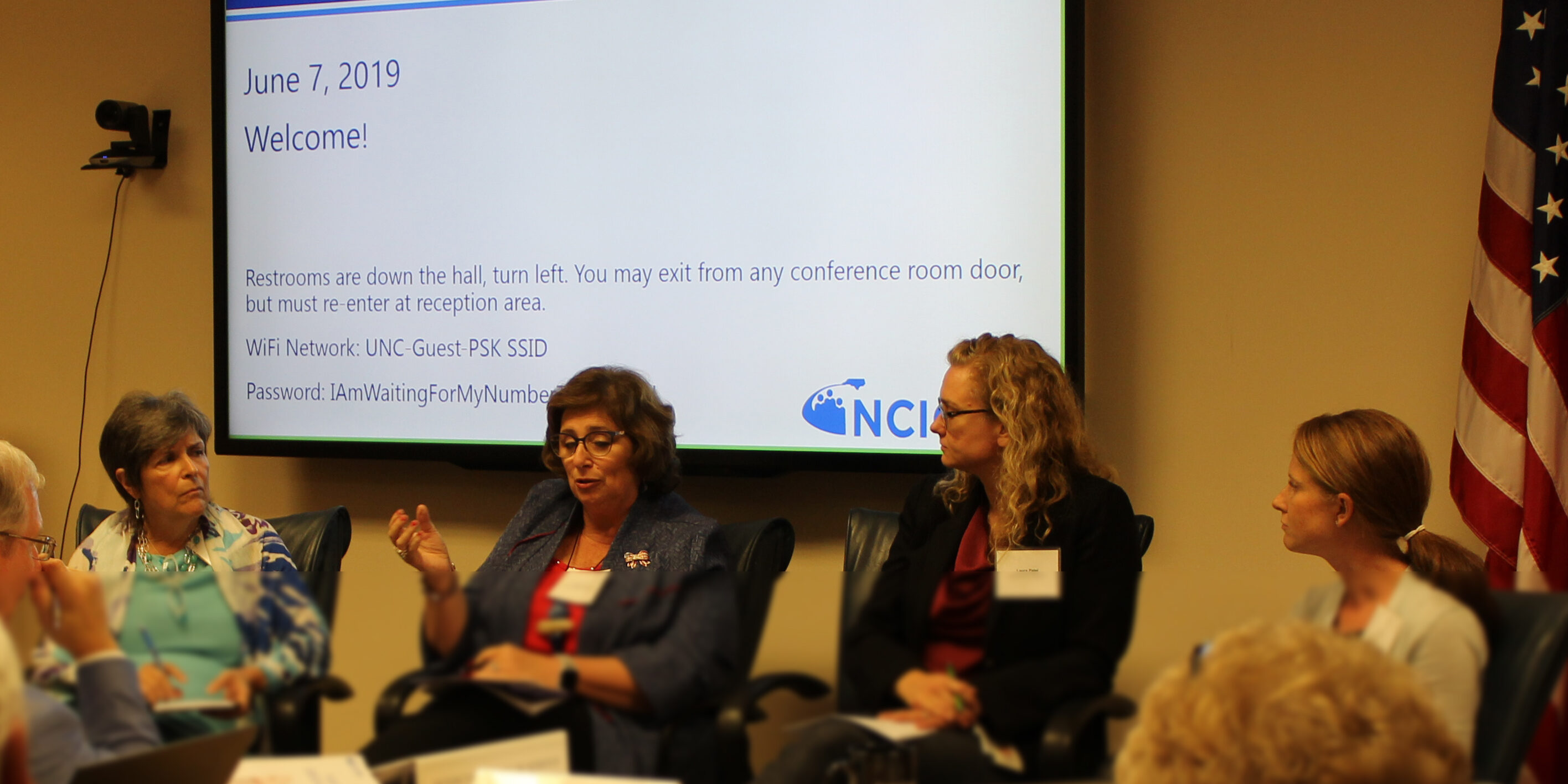

The NCIOM is convening a Task Force on Serious Illness Care to examine access, quality, and reimbursement for advanced care planning, palliative care, and hospice care in North Carolina. On June 7, the Task Force on Serious Illness Care convened to discuss the who, what, and where of palliative care, and how legislation in the pipeline might affect family caregiver support.
The first session of the day focused on care delivery. Speakers Kellie Brockman of Duke Home Care and Hospice, David W. Cook of Carolina Caring, Tim Rogers of the Association for Home & Hospice Care of North Carolina, and Heather Smith from Advance Home Care discussed differences in care settings, transitions between settings, and access to care. Speakers and Task Force members addressed the advantages/disadvantages of different care settings and discussed innovative models of integrating care across settings in order to improve access and quality of care.

NCIOM President and CEO Adam Zolotor then facilitated a discussion about who should be on a care delivery team for serious illness care. The panel included Donna Lake of East Carolina University and the NC Future of Nursing Action Coalition, Kristen Lakis of Duke Pediatric Quality of Life, Deborah Love of Novant Health, and Laura Patel of Transitions LifeCare. They discussed the impact of technology and team models on care delivery, how care is operationalized, and more. The panel discussion helped the Task Force create a preliminary list of areas for improvement and best practices in the delivery of serious illness care, which will inform its recommendations. Primary takeaways from the panel included the importance of collaboration and trust across health systems and care settings, the need to include family members as an integral part of the care team, and the potential for new payment models to improve care delivery. (Click here to access all of the presentations from this meeting.)

Before ending the day with small group discussions, the Task Force saw a presentation from Dawn Oakey Gartman of NC DHHS and Mary Bethel of the NC Coalition on Aging about pending legislation regarding family caregiver support and state models of caregiver support programs. Speakers highlighted challenges faced by family caregivers of individuals with serious illness, including barriers to continued employment, financial constraints, and mental and physical health issues caused by the strains of caregiving.
The Task Force will meet next in July. The Task Force on Serious Illness Care is co-chaired by Paulette R. Dillard of Shaw University, Jonathan Fischer of Duke Palliative Care, and Joyce Massey-Smith of NC DHHS. The Task Force is supported by the Duke Endowment, with additional support from AARP NC, Leading Age NC, the NC Health Care Facilities Association, American Cancer Society NC, the Association for Home & Hospice Care of North Carolina, the NC Medical Society, and the Carolinas Center.